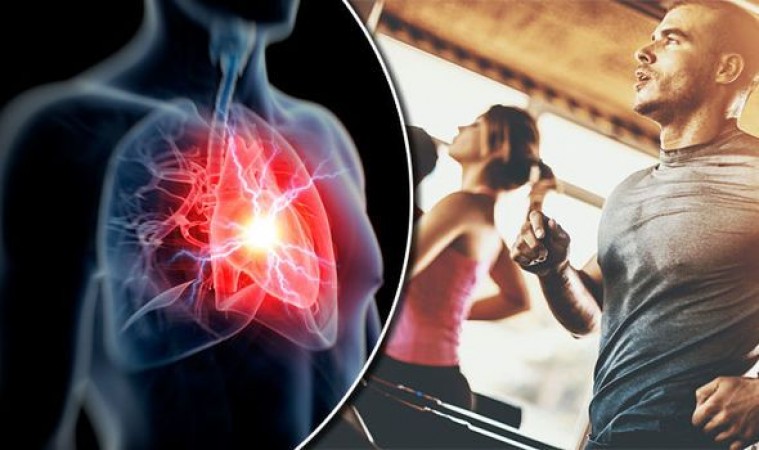In recent years, there has been a concerning rise in the number of heart attacks occurring in gyms. While exercise is widely recognized as a key component of a healthy lifestyle, it's crucial to understand why some individuals experience heart attacks during their workouts and what steps can be taken to minimize this risk. In this article, we will delve into the factors contributing to gym-related heart attacks and provide practical tips on what you can do before hitting the gym to avoid such life-threatening incidents.
Understanding the Risk Factors
1. Age and Preexisting Conditions
- Age Matters: One of the primary risk factors for gym-related heart attacks is age. Individuals over the age of 45 are more susceptible to these events.
- Preexisting Conditions: Having underlying medical conditions like hypertension, diabetes, or a history of heart problems increases the risk of heart attacks during exercise.
2. Overexertion
- Pushing the Limits: Overexertion during workouts can strain the heart. It's essential to know and respect your physical limits.
- High-Intensity Workouts: High-intensity exercises can be particularly risky, especially for beginners. Gradual progression is key.
3. Lack of Warm-up
- The Importance of Warm-up: Skipping a proper warm-up can shock the heart, increasing the risk of heart attacks. Always dedicate time to warm-up exercises.
- Enhancing Blood Flow: Warming up enhances blood flow, preparing your body for the physical demands of exercise.
4. Dehydration
- Hydration is Key: Dehydration can strain the heart and is a significant risk factor for exercise-induced heart attacks. Ensure you are well-hydrated before, during, and after your workout.
- Electrolyte Balance: Maintaining the balance of electrolytes in your body is crucial for preventing dehydration.
5. Ignoring Warning Signs
- Listen to Your Body: Ignoring warning signs such as chest pain, dizziness, or shortness of breath is dangerous. Always pay attention to your body's signals and seek immediate medical help if you experience these symptoms during exercise.
- Early Intervention: Recognizing warning signs early can make a significant difference in preventing severe health complications.
Preventing Gym-Related Heart Attacks
1. Medical Checkup
- Consult a Physician: Before embarking on any exercise program, it is essential to consult your doctor, especially if you have preexisting medical conditions. Your physician can provide valuable guidance and recommendations based on your health status.
- Know Your Health Status: Understanding your current health status is the first step in tailoring your exercise regimen to your specific needs and limitations.
2. Gradual Progression
- Start Slowly and Progress Gradually: Beginners should commence their fitness journey with low-intensity workouts and progressively increase the intensity over time. Gradual progression allows your body to adapt safely to the demands of exercise.
- Seek Professional Guidance: Consider working with a certified fitness trainer who can design a safe and effective progression plan tailored to your fitness level and goals.
3. Adequate Warm-up
- Incorporate Dynamic Warm-up: Your warm-up routine should include dynamic stretching and light aerobic exercises. These activities help elevate your heart rate gradually and prepare your cardiovascular system for more vigorous exercise.
- Prevent Shock to the Heart: A proper warm-up reduces the risk of shocking your heart with sudden intense physical activity.
4. Hydration
- Stay Hydrated: Maintaining proper hydration is essential for overall health and exercise safety. Consume an adequate amount of water throughout the day, and pay special attention to your fluid intake before, during, and after your workout.
- Consider Electrolyte Drinks: For extended or intense workouts, electrolyte drinks can help maintain the balance of essential minerals in your body, preventing dehydration and related complications.
5. Monitoring
- Use Heart Rate Monitoring: Invest in a heart rate monitor or wearable fitness technology to keep track of your heart rate during exercise. Staying within safe heart rate zones is crucial for heart health.
- Be Cautious and Responsive: If you notice unexpected spikes in your heart rate, experience discomfort, or feel unwell during exercise, stop immediately and seek medical attention.
6. Emergency Plan
- Be Prepared: Familiarize yourself with basic cardiopulmonary resuscitation (CPR) techniques and have an emergency action plan in place. Quick and informed action in emergencies can be life-saving.
- Saving Lives: In critical situations, knowing what to do can make the difference between life and death.
Exercising in the gym is an excellent way to maintain good health and fitness, but it's essential to prioritize safety above all else. Understanding the risk factors associated with gym-related heart attacks and implementing preventive measures, such as regular medical checkups, gradual progression, proper warm-up, adequate hydration, and vigilant monitoring, can significantly reduce the risk of heart-related incidents during your workouts. Your health is your most valuable asset, so exercise safely, enjoy the benefits of a healthy lifestyle, and remember that taking care of your heart is a lifelong commitment.
Improving Your Sleep: Try These Foods for a Good Night's Rest
30 Tried-and-True Cooking Techniques from the Past
The Sizzle and Flip Side of Cheeseburgers: Health Advantages and Disadvantages
